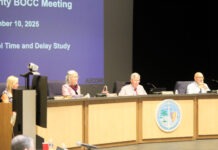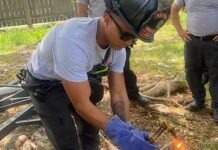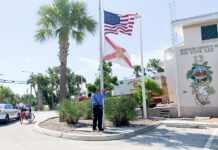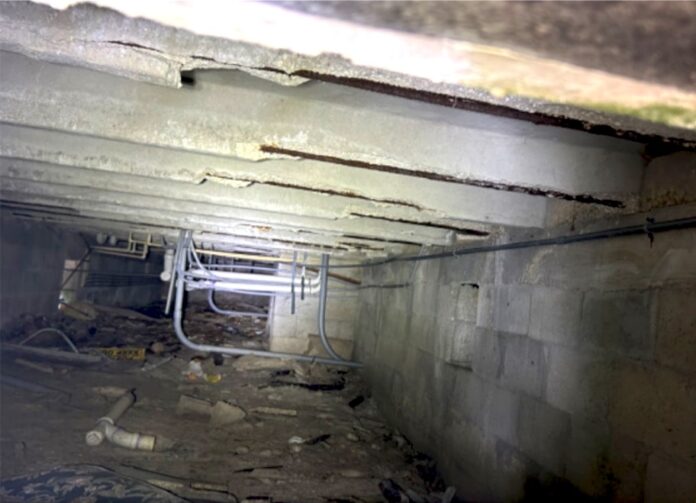
For more than a week after being displaced from their apartments when a balcony collapsed on April 15, the tenants in the 16 workforce housing units at 1655 Overseas Highway waited for news on the status of their homes.
On April 24, they got their answer as an Existing Building Recertification (EBR) report prepared by engineer Rainer Feria of RAF Engineering LLC deemed the building “structurally unsafe for the specified use for continued occupancy.”
Among other deficiencies, the report cited cracked floor systems in “very poor condition” with heavy spalling damage and stated that “the main structural members (beams and columns) require immediate concrete repair.” It went on to note that even beams that were recently repaired already showed cracks.
“The collapse of the balcony … is undeniable evidence of the serious structural condition of these buildings,” it concluded.
“It is with a heavy heart that I report to you all … (that) this means no tenants may move back into the apartments,” property manager Josh Mothner wrote in an email to residents on April 24. “You are going to have to find new places to live. I know this is tremendously difficult for everyone.”
As outlined by an ordinance passed by the city in September 2021 and amended in January 2022, the EBR inspections are required for multistory buildings more than 17 years old. They require an owner to hire state-certified engineers to inspect the building’s structure and electrical systems in an effort to prevent tragedies like Miami’s Surfside condominium collapse in June 2021 that resulted in 98 deaths.
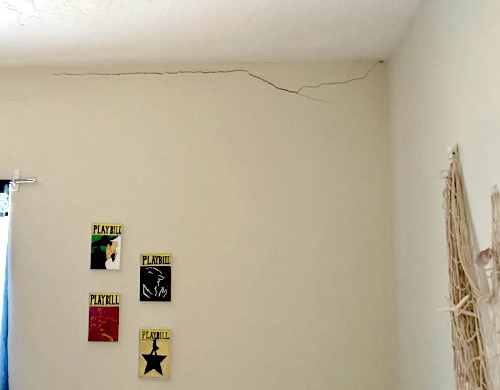
The April 15 collapse underscores the importance of the ongoing inspections, as the workforce housing complex built in 1954 and currently owned by St. Columba Episcopal Church is the fourth closure in Marathon since the ordinance was adopted. Prior inspections have already caused the closure of Mariners Place, a 15-unit apartment building on Coco Plum Drive built in 1978, along with temporary closures of popular eatery Panda House and a multi-unit commercial building on 53rd Street Ocean housing six small businesses, within the last 14 months.
Marathon had begun systematically working through the city’s list of eligible buildings starting from the east end of town. It had yet to reach St. Columba’s complex before the collapse, but accelerated its timeline with the obvious life safety risk.
“Our building department will redouble its efforts to complete the inspections of the older buildings in our community to ensure the well-being of all our residents and visitors,” said City Manager George Garrett in a press release on April 28.
Funded by donations from Keys Area Interdenominational Resources (KAIR) and the Coldwell Banker Schmitt Charitable Foundation, tenants without other available accommodations were provided with hotel rooms and food donations for nearly two weeks after the collapse. However, that support ended on April 28, leaving residents challenged to find immediate housing in a barely navigable workforce housing market. Tenants were instructed not to return to the building without the presence of Marathon Fire Rescue personnel, and were given limited windows in which to complete a supervised move-out.
The Weekly reached out to St. Columba’s Rev. Debra Maconaughey for an update on the church’s plans for the building and an update on tenants still searching for housing, but was unable to directly connect before press time.

